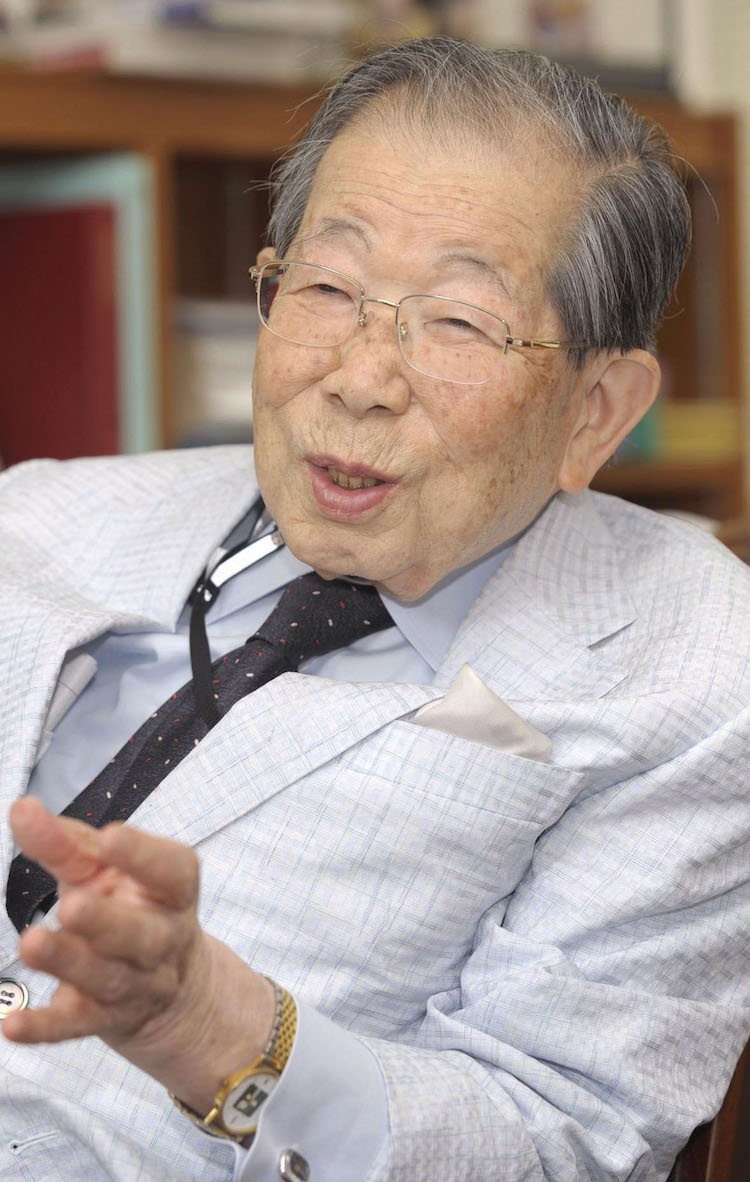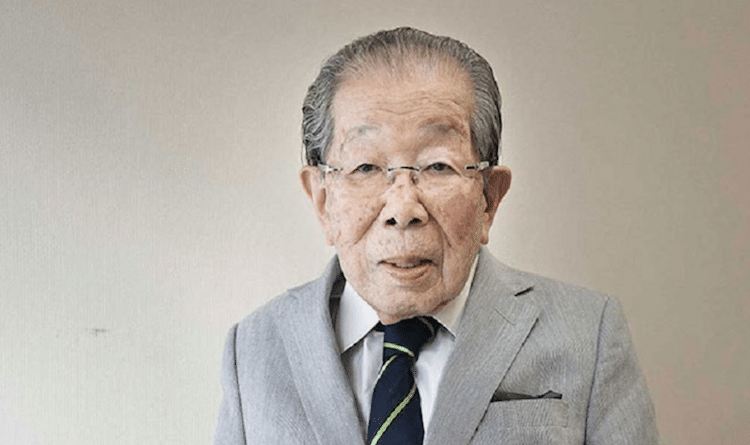
Photo: Japan Times
In 2009, author, physician, and longevity expert Dr. Shigeaki Hinohara sat down with Japan Times for an enlightening and eye-opening interview. At the time, Hinohara was 97-years-old and esteemed for his health—both physical and mental—and his admirable role as “one of the world’s longest-serving physicians and educators.” While Hinohara has recently passed away at the age of 105, his legacy lives on through his sage and simple secrets to living a long life.
Covering everything from health to happiness, Hinohara's tips outlined in Japan Times offer a bit of insight into his own longevity. Born in 1911, Hinohara dedicated his life to a myriad of causes—namely, medical reform. Since 1941, he worked closely with St. Luke's International Hospital, where he pioneered annual physicals, introduced equipment to handle mass casualties, and advocated for a more personal and individualized approach to patients and treatment. In addition to his work with St. Luke's, he also took on a number of projects, including a children's musical and best-selling book—written at the age of 101.
Because of these outstanding professional successes and his mindful approach to everyday life, Hinohara has served as an inspiration in Japan and beyond for decades. And, even after his death, people will undoubtedly continue to look to his wisdom and words for guidance.

Photo: Karsten Thormaehlen
Here are 12 tips to a long life by 105-year-old longevity expert Dr. Shigeaki Hinohara:
1. Eat well
“All people who live long — regardless of nationality, race or gender — share one thing in common: None are overweight. For breakfast I drink coffee, a glass of milk and some orange juice with a tablespoon of olive oil in it. Olive oil is great for the arteries and keeps my skin healthy. Lunch is milk and a few cookies, or nothing when I am too busy to eat. I never get hungry because I focus on my work. Dinner is veggies, a bit of fish and rice, and, twice a week, 100 grams of lean meat.”
2. Don't take shortcuts!
“To stay healthy, always take the stairs and carry your own stuff. I take two stairs at a time, to get my muscles moving.”
3. Rediscover your youthful energy
“Energy comes from feeling good, not from eating well or sleeping a lot. We all remember how as children, when we were having fun, we often forgot to eat or sleep. I believe that we can keep that attitude as adults, too. It’s best not to tire the body with too many rules such as lunchtime and bedtime.”
4. Keep busy
“Always plan ahead. My schedule book is already full until 2014 [five years ahead at the time], with lectures and my usual hospital work. In 2016 I’ll have some fun, though: I plan to attend the Tokyo Olympics!”
5. Retain a work ethic
“There is no need to ever retire, but if one must, it should be a lot later than 65. The current retirement age was set at 65 half a century ago, when the average life-expectancy in Japan was 68 years and only 125 Japanese were over 100 years old. Today, Japanese women live to be around 86 and men 80, and we have 36,000 centenarians in our country. In 20 years we will have about 50,000 people over the age of 100.”
6. Continue to contribute to society
“It’s wonderful to live long. Until one is 60 years old, it is easy to work for one’s family and to achieve one’s goals. But in our later years, we should strive to contribute to society. Since the age of 65, I have worked as a volunteer. I still put in 18 hours seven days a week and love every minute of it.”






















































































